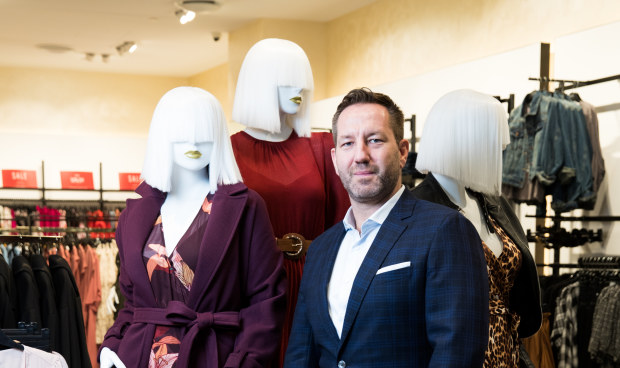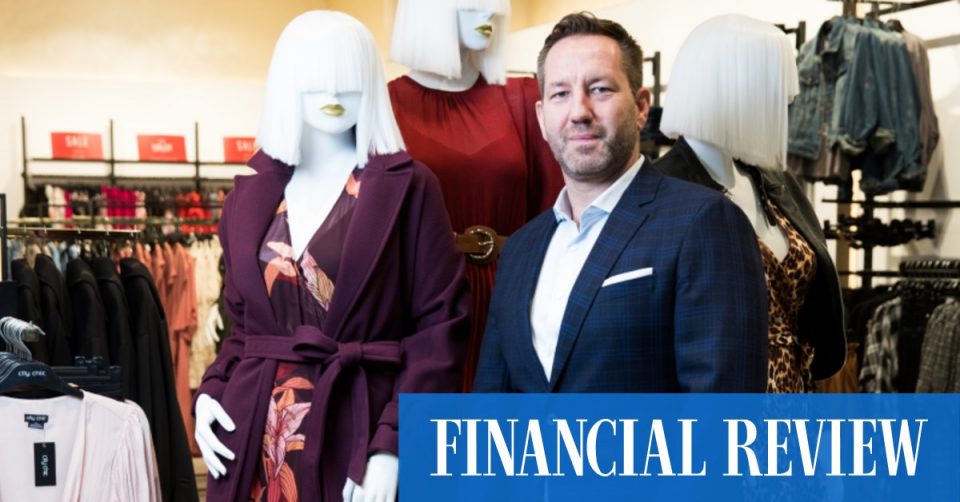
“Really right now the supply costs are at an absolute maximum,” City Chic Collective Phil Ryan said on Friday. Janie Barrett
Among its solutions, Mr Ryan said City Chic would further stockpile inventory in the year ending June 30, and beyond, until it saw a normalisation in supply chains.
“This is a risk with more of our cash tied up. However, with the board support, we decided that the strategic investment in inventory was less of a risk than not having inventory to sell,” Mr Ryan said.
He declined to comment on analysts’ questions about cash burn from inventory stockpiling in the first half, saying the numbers would be in its February 24 earnings update.
The company is also using its cash position ($40.5 million at December 26) to make faster payments to factories to win priority among the manufacturers’ other clients. It has also upped its order sizes to negotiate better rates.
“At a cost level, we have increased our volumes so much that we were able to get a better rate with the factories and really right now that’s offsetting the increases [in costs] … I would have thought that in time [it] would have increased the margin. However, that hasn’t played out…” he said.
The current supply chain issues did not change City Chic’s growth strategy for the next three to five years, Mr Ryan said.
“Really right now the supply costs are at an absolute maximum. And I do see in time that negating. Is that three months, is that 12 months, is that 24 months?” he asked. “Market forces have to bring that back, I believe, in time.”
Jewellery retailer Michael Hill, meantime, has delivered record Christmas results despite the company grappling with store closures because of the spread of COVID-19.
The jewellery retailer said group all-stores sales rose 9.8 per cent in the second quarter ended December 26 to $217.5 million despite the company having lost 2381 store trading days. Group same-store sales rose 9.6 per cent from the year-earlier period to $204.2 million.
In Australia, same-store sales rose 5.2 per cent and all-stores sales climbed 2.2 per cent, even with 38 shops in NSW, 29 in Victoria and four in the ACT temporarily closed for between two and five weeks.
“The successful planning and execution of Christmas underpinned this outstanding result,” said CEO Daniel Bracken.
“From the highly engaging and emotive marketing campaign, to the deployment of new digital initiatives, excellence in supply chain and inventory management and our Christmas recruitment strategy, all came together to deliver Michael Hill’s best Q2 in the company’s history.”
Michael Hill expects its first-half group comparable earnings before interest and taxes (EBIT) in the range of $49 million – $53 million, which would be an improvement on $44.6 million in the year-earlier period.


